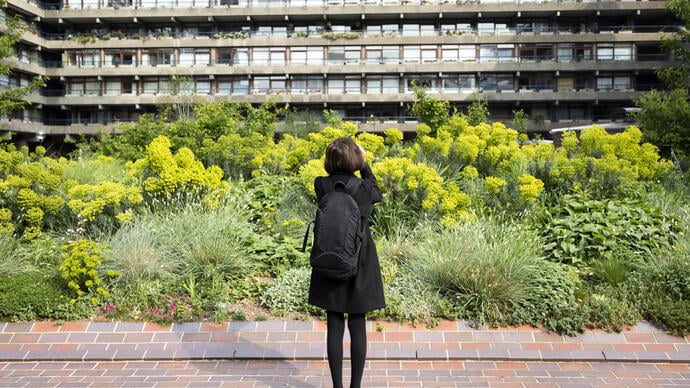Today’s all-American programme reflects a preoccupation through the decades with how to create a distinctively American classical idiom. Each of the five composers featured here finds different solutions, whether incorporating popular music or folk elements.
New York native Adolphus Hailstork was born in 1941. He initially studied the piano, organ, violin and voice, before going on to the Manhattan School of Music and the American Institute at Fontainebleau, where he was a student of Nadia Boulanger, later receiving his doctorate in composition from Michigan State University. Hailstork’s output includes pieces for solo voice, chorus, organ, piano, chamber ensembles, band and orchestra. Three Smiles for Tracey was composed in 1989 for a recital by an affable student named Tracey Brown at Norfolk State University. These three short unaccompanied movements (titled ‘Swiftly’, ‘Gently’ and ‘Sprightly’) evoke smiles in the listener for their upbeat charm.
Jessie Montgomery was born in New York exactly 40 years after Adolphus Hailstork. She is the recipient of the Leonard Bernstein Award from the ASCAP Foundation and the Sphinx Medal of Excellence. She is the composer-in-residence for the Sphinx Organization, which supports young Black and Latinx musicians.
She composed Peace in 2020 for husband-and-wife duo, violinist Elena Urioste and pianist Tom Poster, premiered as part of a series of streamed performances during the COVID-19 lockdown.
Montgomery recounts:
I find myself struggling to define what actually brings me joy. And I’m at a stage of making peace with sadness as it comes and goes like any other emotion. I’m learning to observe sadness for the first time not as a negative emotion, but as a necessary dynamic to the human experience.
Jessie Montgomery in turn drew inspiration from Leonard Bernstein’s music. He was born in Massachusetts in 1918 and initially studied the piano before furthering his prodigious gifts at Harvard University, the Curtis Institute of Music and Tanglewood Music Center. In 1958 he became the first American to be appointed music director and conductor of the New York Philharmonic, a post he held until 1969.
Bernstein’s Clarinet Sonata was composed during 1941–2 and was his first published piece. It is dedicated to clarinettist David Oppenheim, whom Bernstein had met while studying conducting with Serge Koussevitzky at Tanglewood, but it was actually premiered in Boston by another clarinettist, David Glazer, with Bernstein at the piano.
The two-movement sonata bears traces of the influence of both Paul Hindemith and Aaron Copland, especially in the first movement. The second foreshadows West Side Story with its walking bass line, syncopations and changing metres.
Copland was a mentor and a friend to Bernstein. He was born in 1900 to Russian-Jewish immigrants. He had an older sister who taught him the piano and at the age of 15 he decided to become a composer. In 1921 he attended a newly founded school for Americans in France under the tutelage of Nadia Boulanger.
Copland’s Clarinet Sonata was originally written for violin and piano during 1942–3, reworking it for clarinet and piano in 1980. It was composed in memory of Copland’s friend, Lieutenant Harry H Dunham, who died in combat, and was premiered in 1944 with violinist Ruth Posselt and Copland at the piano. The clarinet transcription was unveiled in 1986 by Michael Webster and pianist Barry Snyder. The sonata draws on American folk tunes and the second and third of its movements are played without a break.
The first movement pits lyrical sections against more brisk material; the second is a dreamy Lento in A–B–A form, while the mood shifts again in the finale, featuring complex rhythms juxtaposed against melodic passages. There’s a reminiscence of the main theme from the first movement before the work comes to an end.
James Lee III was born in Michigan in 1975. In 2005 he gained his doctorate in musical arts from the University of Michigan. He has written orchestral, band and choral works, in addition to chamber music and solo piano pieces. He is currently a professor of music at Morgan State University in Maryland.
Ad Anah? is Hebrew for ‘how long?’ or ‘until when?’ The work was written in 2015 for a faculty recital at Morgan State University; it was premiered by clarinettist Alison Yacoub with the composer at the piano. There is constant dialogue between the two instruments, offering a musical commentary on the injustices that the Prophet Habakkuk observed in Israel during the Old Testament of the Hebrew bible. The piece is launched by the piano, with the clarinet joining in with trills and flourishes.
© Aaliyah Booker



